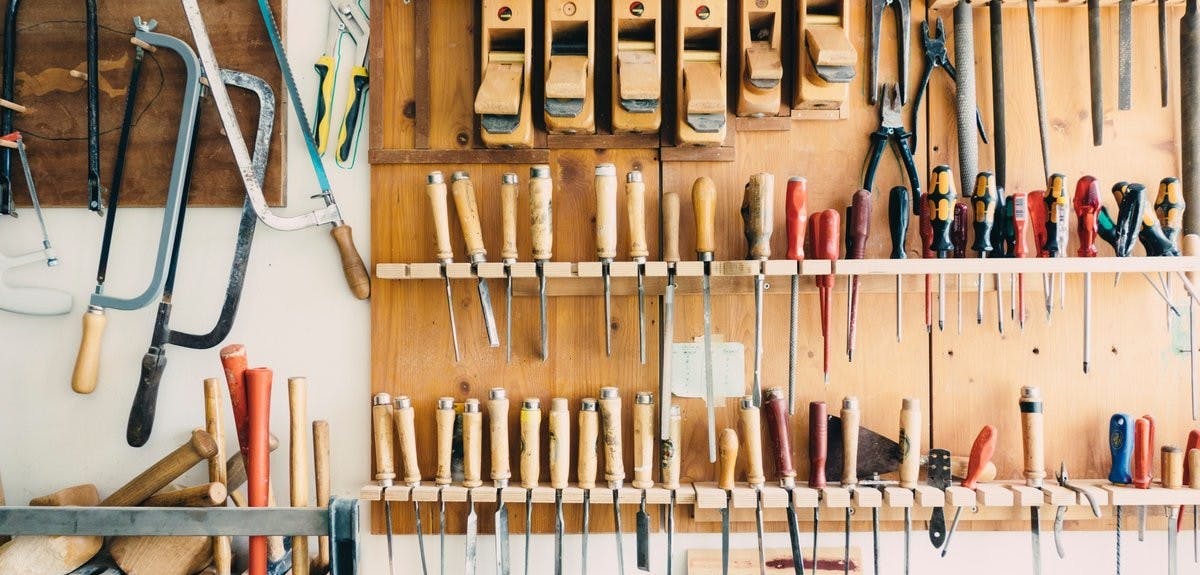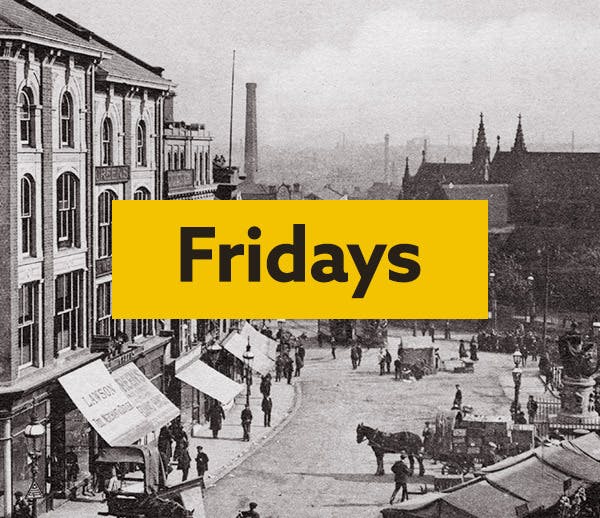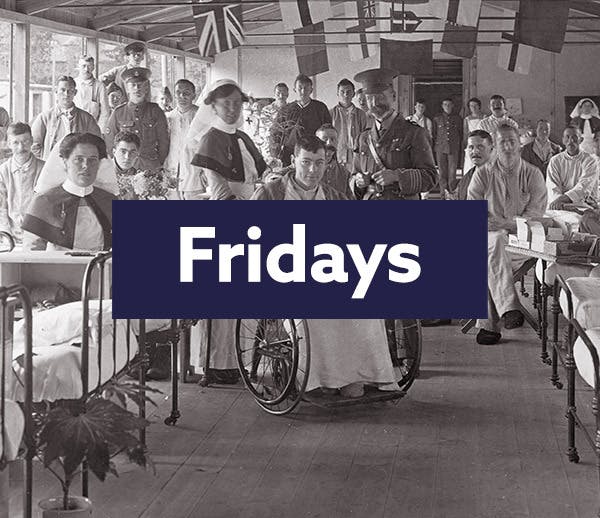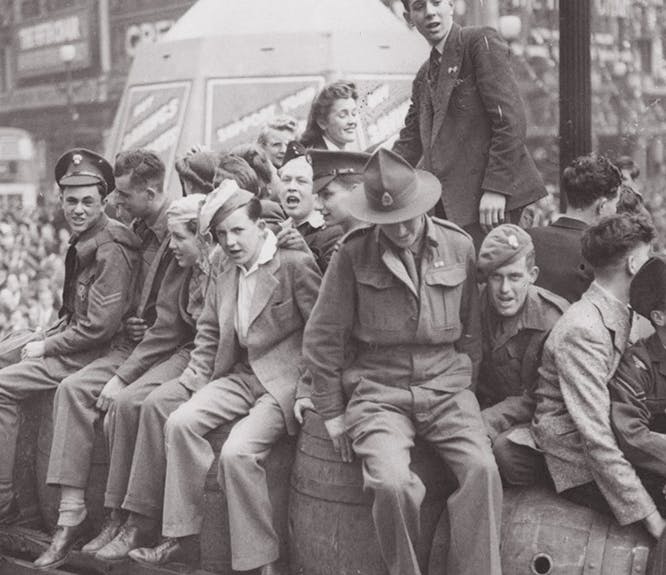Finding Ancestors at Work or in Training
5-6 minute read
By The Findmypast Team | July 12, 2018

Welcome to your latest installment of The Essential Guide to British and Irish Family History! This week, we're looking at occupation and apprentice records, a valuable and often-overlooked resource for your family discovery.
Firstly, we'll be covering the specific collections that you can search to find your ancestors in work or training, then we'll take a look at apprenticeship records and the ways you can get the most from them.
Here are 9 of the many places to find your ancestor's occupation in the records:
There are records that highlight specific occupations, and these records are useful to explore because they can provide a great amount of detail about your ancestor. Our occupation records include civil service, farming and agriculture, guild and trade associations, and more.
It should go without saying that census records are a vital resource for discovering the occupations of your ancestors. Come this way for tips from a professional researcher that can help you to catch details you may have missed in the census.
Surnames in many cases are derived from particular occupations. Smith, Butcher, Archer, Jagger and Mason are all examples of occupational surnames. For a more comprehensive list of such names, and their meanings, click here.
Obituaries are a great place to look as they can often provide a little more description and detail about your ancestors and the lives they may have lived. Obituaries often include the deceased person's occupation as part of the description.
Sometimes you can find your ancestor's occupation on their tombstone, especially if they were part of an organization or were well-recognized in their field.
The WWI Draft Registration Cards are great for learning more about your ancestors. The registration cards are incredibly detailed and include general information like names and dates, occupations and physical descriptions. If you don't see your ancestor's occupation listed in the transcript of the document be sure to look at the image of the document, it's most likely included on the record image.
One fun way to find your ancestor's occupation is through city directories. You might have to do a little bit of digging through the records to find your ancestors, but the city directories list residents and local businesses, so you may see a listing for your relative's business.
Probate records are court-records created after the death of an individual. These records are from the court's decisions to divide up the estate of a deceased individual. These records are extremely helpful in genealogy because they provide unique details such as occupation, family members, and dates of death, etc.
Often local papers recorded small town news and events such as guests visiting or town gossip. That, coupled with the opportunities to see business listings, notes on workplace accidents, robberies, mergers and acquisitions and more make newspapers a vital resource for learning about ancestors' business and occupations.
These are just a few of the many records that you can use to get started searching for your ancestor's occupation or a great way for you to try to fill in those gaps you might be missing about your ancestor's history. Chances are if your ancestor had a profession such as a silversmith or printmaking, they went through a rigorous apprenticeship.
Apprenticeships are different from traditional schooling and education because they teach the apprentice, or the person looking to become this particular profession, the skills they need to become a master at the trade or craft through hands-on, real working experience.
Historically apprentices learned the trades by assisting master craftsmen and craftswomen with the job at hand for several years. In Great Britain, for example, it was the law until 1814 that an apprentice was bound to a master for 7 years, which meant that the apprentice couldn't leave or break the bond themselves unless The Justice of the Peace intervened. It was also British law that an apprentice would be bound to their master until the age of 21, so that meant that some apprenticeships actually lasted more than 7 years if the apprentice started at a very early age, which wasn't that uncommon.
The nature of apprenticeships varied from person to person and trade to trade, but it wasn't uncommon for a son to be an apprentice to his father or uncle, for example, and for a particular craft or trade to be passed down the family. Sometimes apprentices were forced to run away to escape their apprenticeship, so the experience of the apprenticeship depended entirely on the master. Keep an eye out for those instances in the records.
Having this knowledge can help you with your genealogy research because when you look into apprenticeship records you may see the master listed and it is possible that the master is related to your ancestor, so pay close attention to those relationships when researching apprentice records.
One key document that you may or may not find in your research is the indenture, which is a contract that states the details of the agreement between the parents or guardians of the apprentice and the master. It also usually states the premium the master charged for the apprenticeship. The premium is the amount that the parents or guardians paid the master for his services of taking on their child or dependent into an apprenticeship. In 1709, The Stamp Act required that the apprenticeship premiums be taxed so apprenticeship records were mandatory between 1709 and 1811, so you will likely find your ancestor's during that time period if they were an apprentice then.
What specific details you can learn about your ancestor in the apprentice records will vary from record to record, but it is important to keep them in the back of your mind when researching those particularly vague ancestors because you never know if they were an apprentice at some point!
You can also search the records by master, so if your ancestor was a particularly talented blacksmith, for example, then chances are he/she may be in the apprentice records listed as a master, so don't forget to check for them as well.
Here are 3 key details that you can find in apprentice records that will help you with your genealogical research:
On the indentures, often the occupations of the parents or guardians are listed, which may help you overcome brick walls you're facing with information about your ancestors where records might be less frequently found. Not all apprentice indentures will include this information, but be sure to check the images provided, if applicable, to gain more information from the transcriptions alone. If you're intimidated with reading old handwriting, do not worry, you can view the original image and use the transcription as a guide to help you through it. If you look at the example below, the transcription lists the apprentice, George Frederick Adams and the father is Thomas Adams, and the parent's occupation is listed as Dr. in Physics, so you can use the transcription to help you navigate the original document because some of those documents from the early 1500's and 1600's can be very tricky to decipher.
The indenture year listed can help you potentially pinpoint the date of your ancestor's birth or provide you with a more narrowed range. If most apprenticeships lasted approximately 7 years, and until the age of 21, then you can use these two figures to help narrow down your ancestor's age, although do be careful with this information and find your original sources to support your estimations. If the apprenticeship ended after X number of years, then you can estimate when the apprenticeship began. For example, if your ancestor was only 10 at the time the apprenticeship began and the apprentice records indicate that your ancestor was an apprentice for 11 years, a long time for an apprenticeship, you can take 21-11 to get the approximate age of your ancestor. So, if you have one ancestor whose apprenticeship lasted only 5 years, there's a possibility that your ancestor was 16 when the apprenticeship began. Although, keep in mind that your ancestor may have run away from his or her apprenticeship, which would also be the reason it ended earlier than expected.
If you suspect that your ancestor may have run away from his or her apprenticeship, then it's possible that the newspapers covered it. Be sure to do a quick newspaper search of the time you think your ancestor may have made a run for it and search "runaway apprentice." These notices will often reveal your ancestor's name in full.
---------------------------------------------------------------------------------------------------------------------------------------
Thanks for reading this installment of The Essential Guide to British and Irish Family History! We'll be back with more soon.




